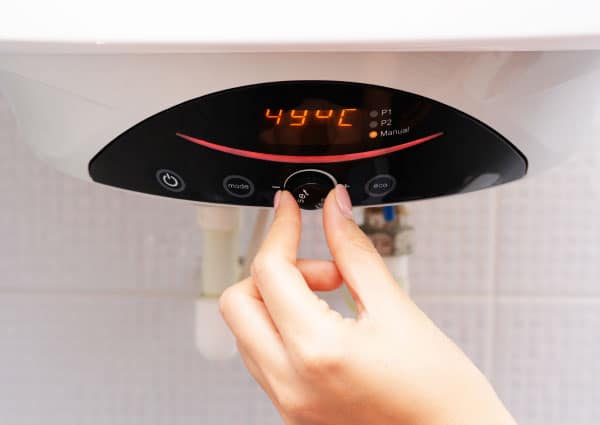In this article down the page you can find a lot of sound data in regards to Is Your Water Heater Leaking?.

A water heater is among one of the most vital standard appliances that can be found in a home. With water heaters, you do not require to experience the anxiety of heating water manually each time there is a requirement to wash, do the laundry, or the meals. However, there is constantly an opportunity that your hot water heater would certainly break down similar to the majority of mechanical devices.
It is important to keep in mind any little breakdown as well as tackle it rapidly prior to points leave hand. The majority of times, your hot water heater starts to malfunction when there is a build-up of debris as a result of continual use. As a preventative measure, periodic flushing of your water heater is advised to prevent sediment accumulation and also prevent functional failure.
Typical hot water heater emergency situations and exactly how to take care of them
Dripping hot water heater container.
A dripping container could be a sign of corrosion. It can create damages to the flooring, wall surface and electrical devices around it. You could also go to risk of having your house swamped. In this circumstance, you must turn off your hot water heater, enable it to cool, and also carefully seek the source of the trouble. At times, all you require to do is to tighten a few screws or pipe connections in cases of minor leaks. If this doesn't function and also the leak continues, you might need to utilize the solutions of a specialist for a proper substitute.
Fluctuating water temperature.
Your water heating unit might begin producing water of different temperature levels generally ice scalding or chilly warm. There could be a demand to replace either the heating or the thermostat system of your water heating unit.
Insufficient warm water
Managing an insufficient supply of hot water can be frustrating. It might be that the hot water heater can't sustain the warm water demand for your house. To deal with this trouble, you might attempt to readjust your heating unit's temperature dial and also wait on a couple of minutes. If the problem lingers, you can ask for the aid of an expert plumber. You might upgrade your water heater to one with a bigger ability.
Blemished or stinky water
When this takes place, you need to recognize if the issue is from the storage tank or the water source. If there is no funny scent when you run cool water, then you are certain that it is your water heater that is malfunctioning. The smelly water can be created by rust or the accumulation of germs or debris in the water heating unit container.
Conclusion
Some house owners neglect little caution as well as minor faults in their water heater device. This just results in more damages as well as a possible full malfunction of your home appliance. You should manage your water heater mistakes as soon as they come near prevent more costs and unneeded emergency problems.
With water heating units, you do not need to go with the stress of home heating water by hand every time there is a requirement to take a bathroom, do the washing, or the recipes. Your water heating unit can begin creating water of different temperatures typically ice hot or chilly warm. It may be that the water heater can't sustain the hot water need for your house. If there is no funny smell when you run cool water, after that you are particular that it is your water heater that is faulty. The smelly water can be created by corrosion or the buildup of bacteria or sediments in the water heater storage tank.
Common Water Heater Issues and What You Should Do
What Type of Water Heater Do You Have?
Before we begin it’s first important that you identify the type of water heater you have on your property. There are two main types of water heaters out there: conventional and high efficiency.
Both of these types of products typically use either gas or electricity to heat power. There are also solar water heaters that use a thermal collector on the roof or yard to heat the water.
While these models are not as common, they can cut heating costs in half. In this article, we will focus on conventional and high efficiency.
How Do My Electric and Gas Water Heater Work?
Though they look similar, electric and gas water heaters work very differently. It’s important to know their basic function because often problems can be specific to the heating source.
In the electric model, a thermostat on the side of the machine detects the temperature of the water in the tank. When the temperature needs to rise electricity flows to a heating element suspended in the water.
Gas models also use a thermostat device — typically with a mercury sensor at the tip and an additional sensor called a thermocouple. The thermocouple detects whether the pilot light is on and controls the flow of gas.
When the thermostat drops below the appropriate level gas is released which becomes ignited by the pilot light. The flame heats the bottom of the water tank which causes hot water to rise and cold water to drop.
This natural circulation continues until the water reaches the desired temperature. Then, the thermostat triggers the gas control valve to shut off the flow of gas.
What Are the Most Common Issues and How Do You Fix Them?
https://happyhiller.com/blog/common-water-heater-issues-and-what-you-should-do/

Do you like reading about Warning Signs You Need Water Heater Repairs? Try leaving a review below. We would be delighted to hear your views about this post. In hopes that you come back again in the future. Are you aware of another person who is curious about the subject? Be sure share it. Thanks for going through it.
Save your home, call now!